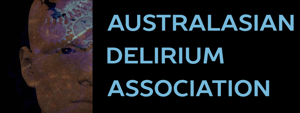Clinical Guidelines and Initiatives
Early diagnosis is key to effective treatment and minimizing long-term complications
🇺🇸 USA
Guidelines

Society of Critical Care Medicine
Clinical Practice Guidelines for the Prevention and Management of Pain, Agitation/Sedation, Delirium, Immobility, and Sleep Disruption in Adult Patients in the ICU, 2018: “Early diagnosis [of delirium] can result in rapid identification and (if possible) correction of the etiology, reassurance of patients who experience frightening symptoms, (drug and non-drug) treatment and evaluation of the efficacy of the treatment.”
Website: https://www.sccm.org/iculiberation/guidelines

American Geriatrics Society
Clinical Practice Guideline for Postoperative Delirium in Older Adults, 2014: “Delayed treatment appears to result in a prolonged duration of the delirium, which in turn is associated with a deterioration in cognitive and functional recovery and with an increase in morbidity and mortality amongst hospitalised patients.”
Website: https://www.americangeriatrics.org/
Initiatives

American Delirium Society
The goals of the American Delirium Society are to foster research, education, quality improvement, advocacy & implementation science to minimize the impact of delirium on short- and long-term health and well being of patients.
Website: https://americandeliriumsociety.org/

ERAS ® (Enhanced Recovery After Surgery) Society
The ERAS® society aims to promote the global exchange of science between multidisciplinary professionals thereby improving quality and safety in perioperative care. ERAS® programs allow patients to recover much faster after their operation and this reduces the need for hospital stay by about 30% or more.
Website: https://erassociety.org/
![]()
Joint Commission International
Joint Commission International Safe Surgery Guide Page 153: “Post-operative delirium can have detrimental consequences, such as delayed mobilisation, prolonged treatment, prolonged hospitalisation and obstruction of early rehabilitation. There are various diagnostic instruments that healthcare providers can use to assess their patients effectively and uniformly. Healthcare organisations should consider the use of such an instrument.”
Website: https://www.jointcommission.org/

Age-Friendly Health Systems
Addressing the unique care needs of older adults. Age-friendly health care is an urgent need. There are more than 54 million Americans age 65 and over, and that number is projected to climb to about 95 million by 2060
Website: https://www.aha.org/center/age-friendly-health-systems

Perioperative Brain Health Initiative
Increasing public awareness of postoperative cognitive problems has, in part, led to the ASA Brain Health Initiative. This multi-pronged initiative will include research into definitions of risk factors for and best practices to avoid these disorders.
🇪🇺 Europe
Guidelines

European Society of Anaesthesiology
Guideline on postoperative delirium: European Society of Anaesthesiology evidence-based and consensus-based guideline on postoperative delirium, 2017: “Early diagnosis of post-operative delirium is vital in facilitating targeted and effective treatment. Delayed treatment appears to result in a prolonged duration of the delirium, which in turn is associated with a deterioration in cognitive and functional recovery and with an increase in morbidity and mortality amongst hospitalised patients.”
Website: https://www.esaic.org/ and https://journals.lww.com/ejanaesthesiology/Fulltext/2017/04000/European_Society_of_Anaesthesiology_evidence_based.3.aspx
Initiatives

European Delirium Association
The European Delirium Association (EDA) was founded in the mid-2000s by an enthusiastic group of practitioners and researchers, having realised that there was much work to be done in understanding the "pathophysiology, phenomenology and aetiology" of this often under-recognised, yet severely debilitating condition. And: That benefit to the patient could only be achieved by transcending traditional borders between professions and specialties.
🇬🇧 United Kingdom
Guidelines

National Institute for Health and Care Excellence:
Delirium: prevention, diagnosis and management , 2023: “[Delirium] is a serious condition that is associated with poor outcomes. However, it can be prevented and treated if dealt with urgently."
🇳🇱 Netherlands
Guidelines

Dutch Association of Clinical Geriatrics Delirium in adults and older adults, 2020: "The goal is to deliver a guideline with recommendations regarding the prevention, improved and faster recognition, and better treatment of delirium. This revised guideline takes into account the different motor subtypes for the first time. The (preventive) pharmacological treatment of delirium will be critically examined. Specific attention will be given to the risk factors for delirium occurring in patients with dementia and/or hypokinetic-rigid syndrome."
Initiatives
IGZ [Healthcare Inspectorate]
Report Basic set of quality indicators for hospitals, 2016: “Despite the negative prognostic implications of suffering delirium, most hospitals do not pay sufficient attention to the occurrence of delirium… Research indicates that delirium is not recognised in two thirds of patients.”
🇩🇪 Germany
Guideline
.png?width=300&height=108&name=download%20(1).png)
The German Society of Anaesthesiology and Intensive Care Medicine
🇦🇺 Australia
Guidelines

Clinical Care Standard
Delirium Clinical Care Standard, 2021: 'With one in four older medical patients affected, an updated national clinical care standard to improve care for people at risk of delirium – a serious and often preventable condition. The clinical care standard encourages the early recognition of people who are most at risk of delirium, so that steps can be taken to reduce their risk. It also encourages healthcare workers to be alert to changes in behaviour that may be due to delirium. Patients with delirium have worse health outcomes, including increased risk of death, longer hospital stays, higher risk of falls, a greater chance of developing dementia and an increased likelihood of requiring higher dependency care."
Website: https://www.safetyandquality.gov.au/our-work/clinical-care-standards/delirium-clinical-care-standard
Initiatives

Australasian Delirium Association
The Australasian Delirium Association was formed by health professionals from multidisciplinary backgrounds who recognised the need to bring together scientific evidence to improve clinical practice around delirium across a diverse range of specialties.
Website: https://www.delirium.org.au/
Interested? Let's get in touch!
Get in touch to learn how you can reshape acute encephalopathy and delirium care delivery
pageversion: 1.0
